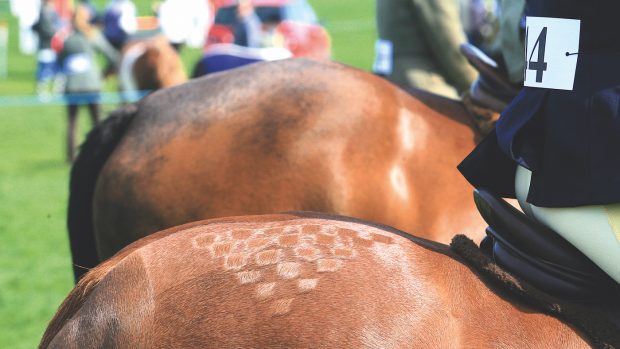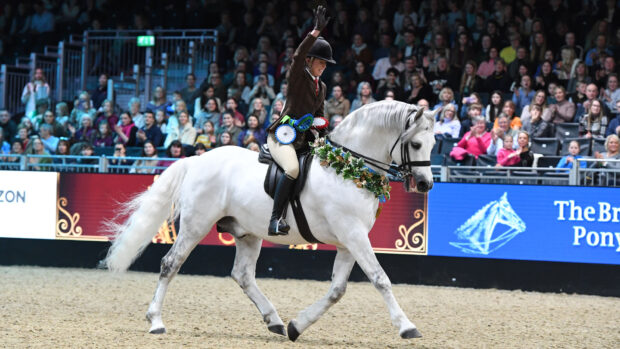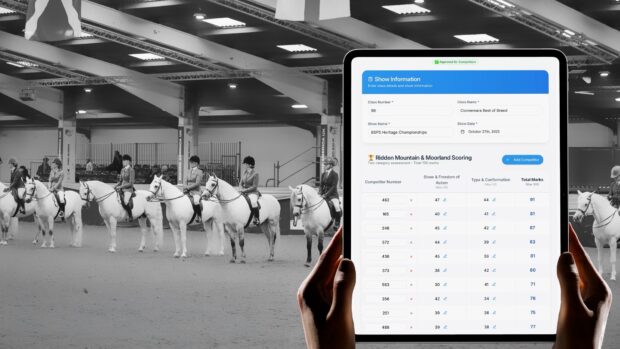It is hoped a new code of conduct will help provide “self-regulation” to the showing industry and set standards to aspire to.
The Showing Council has created the “code of conduct, standards and values” for producers, designed to help members recognise “the standards that should be considered” when engaging a producer/trainer for the production of a horse or pony or when training children.
The code sets out advice, expectations and minimum standard, such as ensuring insurance is in place, safeguarding procedures, requirements for operator licences when transporting, and terms and conditions that should be included in contracts.
The Showing Council’s chair, Liz Inman, told H&H that as the council is not a governing body, the code is voluntary, for member bodies to “use should they wish”, but it is there to offer best-practice advice.
“It covers a number of things for producers to be able to say, ‘I can tick all these boxes,’ but also for potential owners and existing clients of producers. It’s also a really useful document for up-and-coming producers, because it’s setting the standards of what they should be aspiring to,” she said.
“So far the feedback from member bodies has been universally positive, but once it’s been distributed more widely, we’ll be asking for further feedback, and based on that we might make changes or add to the code as it develops.”
Producer Julie Templeton, a Showing Council committee member who helped create the code, told H&H she hopes it will go towards “protecting and promoting the industry”, which currently is not regulated.
“Having been involved in showing for more than 40 years, I felt it’s time that the industry became a bit more professional. We’ve got more producers now than we’ve ever had before, and from the client’s point of view and people who are new to the industry, it must be a minefield,” she said. “If you want to send your children to school, that procedure is regulated – and I felt the same way about producing children’s ponies.
“I think people should really take on safeguarding as a matter of course, because you never know when you’re going to come across somebody who is vulnerable or in a difficult situation.
“There are a lot of elements to the code that I think are really important, including having insurance to protect the client and the producer, and also contracts. There’s still a lot of people producing that don’t have a contract with their clients, but what happens when a dispute arises? The code is an attempt to protect everybody.”
British Show Pony Society chair Paul Cook, who was also involved in developing the code, told H&H it is a “first step to getting some self-regulation and setting minimum standards” in the industry.
“We haven’t got a lot of information out there for new members of showing about the things they might need to consider when having a pony produced, or their child trained. It’s not dictating to them what they should do, it’s just saying they might want to ask these important questions,” he said.
“It’s also about encouraging young producers to think about the things they should have in place if they want to progress. The majority of our professional producers will have these things in any event, but it’s reminding people of those minimum standards.”
You might also be interested in:

Alex Robinson: ‘What actually constitutes an amateur in the show ring?’

We must all unite to fight the battle against equine obesity

Subscribe to Horse & Hound magazine today – and enjoy unlimited website access all year round
Horse & Hound magazine, out every Thursday, is packed with all the latest news and reports, as well as interviews, specials, nostalgia, vet and training advice. Find how you can enjoy the magazine delivered to your door every week, plus options to upgrade your subscription to access our online service that brings you breaking news and reports as well as other benefits.




